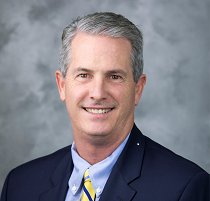
President, Southwest Tennessee EMC
Board President, TECA
Stephen Covey’s “The 7 Habits of Highly Effective People,” first published Aug. 15, 1989, has sold more than 25 million copies worldwide and remains one of the most influential business and self-help books ever written. In the book, Covey challenges his readers to follow seven universal and timeless principles designed to help them be more effective in their personal and professional relationships.
In Covey’s fourth habit, “Think win-win,” he encourages readers to seek solutions that benefit everyone involved.
A recent term being used a lot in the energy industry is “beneficial electrification.” The idea behind the term is simple: Pursue solutions that benefit all — co-op consumers, the co-op that serves them and the environment. I can’t think about this concept without recalling Covey’s fourth habit.
Beneficial electrification is the process of replacing technologies that have traditionally been powered by fossil fuels — think propane furnaces and gasoline automobiles — with electricity-power options.
Electric prices in Tennessee are 17 percent below the national average, and prices traditionally are far more stable than other energy sources. At the same time, electricity is becoming cleaner. Today, 59 percent of the energy we provide comes from carbon-neutral sources, and our energy mix becomes cleaner each year.
For our consumers, this means that investing in an electric appliance — as opposed to gas or propane — will save you money over time, improve your quality of life and reduce greenhouse gas emissions. It also allows the team at each local electric cooperative to operate a more efficient and resilient power grid.
Beneficial electrification benefits you, your co-op and your community. That’s a win-win-win.



